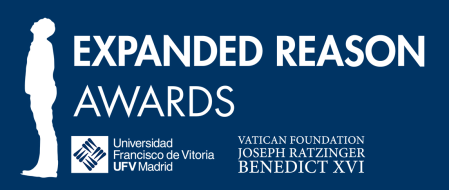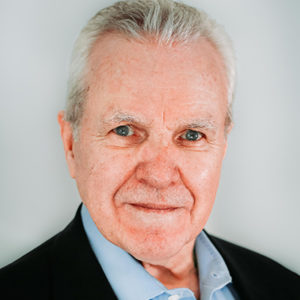Archive for August, 2019
Forgiveness is hard for me. Is it all right to start and stop the process of forgiveness?
Yes, it is all right to start and stop the forgiveness process if you feel that you need a rest from the challenges of forgiving. As an analogy, if we want to be physically fit, we do not work at that fitness 10 hours a day every day. We need to be more temperate than that. So, working on forgiveness for an hour or less some of the days of a week seems reasonable to me. Taking a week off is fine. I was asked by a person if she could take a year off of the forgiveness process. This, to me, would be similar to taking off a year of physical fitness training. One likely would get out of shape waiting that long. One probably would get out of forgiveness-fitness shape as well waiting for a year.
For additional information, see The Four Phases of Forgiveness.
You say that we should not have excessive or toxic anger. Is some anger ok to have as I forgive? If so, how do I know how much is too much?
The keys to distinguishing healthy and unhealthy anger are these:
1. Are you in control of that anger or is it controlling you (with a strong temper, for example, or making you and others miserable)? If you are in control, this is good.
2. Has the anger continued for weeks or longer? If so, it likely is unhealthy anger.
3. Are others giving you feedback that your anger is inappropriate? If this message comes from a reliable source, then it may be time to reflect on that anger possibly being unhealthy.
Learn more at What is Forgiveness?
Does forgiveness start with bearing the pain so that pain is not cast onto others?
Bearing the pain is part of the forgiveness process, but it is not the start of that process because bearing the pain is difficult for most people. The beginning of forgiveness is to understand clearly what forgiveness is and is not. To forgive is to make a deliberate choice to be good to those who are not good to you. To forgive is not to excuse the behavior, to abandon justice, or to automatically reconcile if the other’s behavior is dangerous for you. Once the person understands what forgiveness is, I recommend a step prior to bearing the pain: Commit to doing no harm to the one who hurt you.
For additional information, see Forgiveness Defined.
Dr. Robert Enright and Dr. Richard Fitzgibbons Receive 2019 International Research Award
Two members of the International Forgiveness Institute (IFI) Board of Directors have been selected to receive an international award recognizing their Forgiveness Therapy research. Dr. Robert Enright, founder of the IFI, and Dr. Richard Fitzgibbons, MD, Director of the Institute for Marital Healing just outside Philadelphia, PA, have been named the 2019 recipients of the Expanded Reason Award.

The prestigious award is presented annually by the University Francisco de Vitoria (Madrid, Spain) in collaboration with the Vatican Foundation Joseph Ratzinger/Benedict XVI (Rome, Italy) “to recognize and encourage innovation in scientific research and academic programs.”
Recipients (only two researchers are selected worldwide each year) are determined by an international panel of seven judges who examine books and journal articles to ascertain who across the globe is conducting innovative and exceptional research that cuts across the social sciences. The award criteria includes the challenge of establishing a dialogue of particular sciences with philosophy and theology in line with the thought of Pope Benedict XVI who led the Catholic Church from 2005 – 2013.

Dr. Richard Fitzgibbons
Drs. Enright and Fitzgibbons co-authored the book Forgiveness Therapy: An Empirical Guide for Resolving Anger and Restoring Hope. The book, published by the American Psychological Association (APA) in 2015, signifies that Forgiveness Therapy is now rightfully taking its place alongside such historically accepted therapies as Psychoanalysis, Humanistic Psychotherapy, and Cognitive Behavioral Therapy.
Forgiveness Therapy is actually a new and updated version of a previous book by Drs. Enright and Fitzgibbons, Helping Clients Forgive, that was published in 2000, also by the APA. The new 358-page volume helps clinicians learn how to recognize when forgiveness is an appropriate client goal and provides concrete methods for working forgiveness into therapy with individuals, couples and families. It is grounded in theology, philosophy, psychiatry, education and the social scientific method.
Dr. Fitzgibbons is a long-time research associate of Dr. Enright’s. Trained in psychiatry, he has worked with hundreds of couples over the past 40 years. His book, Habits for a Healthy ![]() Marriage: A Handbook for Catholic Couples, is available at Amazon.com.
Marriage: A Handbook for Catholic Couples, is available at Amazon.com.

Dr. Robert Enright
Dr. Enright, in addition to founding the IFI 25 years ago, has been a professor with the University of Wisconsin-Madison School of Education’s highly-regarded Department of Educational Psychology since 1978. He is the author or editor of seven books and more than 150 publications on social development and the psychology of forgiveness. He pioneered forgiveness therapy and developed an early intervention to promote forgiveness–the 20-step “Process Model of Forgiving.”
Both Dr. Fitzgibbons and Dr. Enright have been invited to attend and formally accept their awards at the Expanded Reason Awards Ceremony on Sept. 19, 2019 at the University Francisco de Vitoria in Madrid.
The Expanded Reason Awards recognize extraordinary teachers and researchers.
The Awards Ceremony is part of the 3-day International Expanded Reason Congress in Madrid that brings together university researchers and teachers from all over the world. The Congress seeks to deepen the dialogue among science, philosophy, and theology through presentations, roundtable discussions, and workshops. Dr. Fitzgibbons and Dr. Enright will be outlining the concepts behind their winning project in a talk that will also be published in the official proceedings of the Congress.♥
What is the difference between “not taking it seriously” and forgiving?
To “not take it seriously” implies neutrality. When we forgive we never are neutral regarding the person who hurt us. We are hurt because what happened matters (for fairness) and whom the person is matters (because we share a common humanity). Thus, forgiveness is linked to: a) expecting fairness; b) having a sense of respect and even love toward the other; and c) self-respect and love. None of this is neutral and should be taken seriously. The key in forgiveness is not letting what matters destroy us or the other.
Learn more at Forgiving is not. . .



